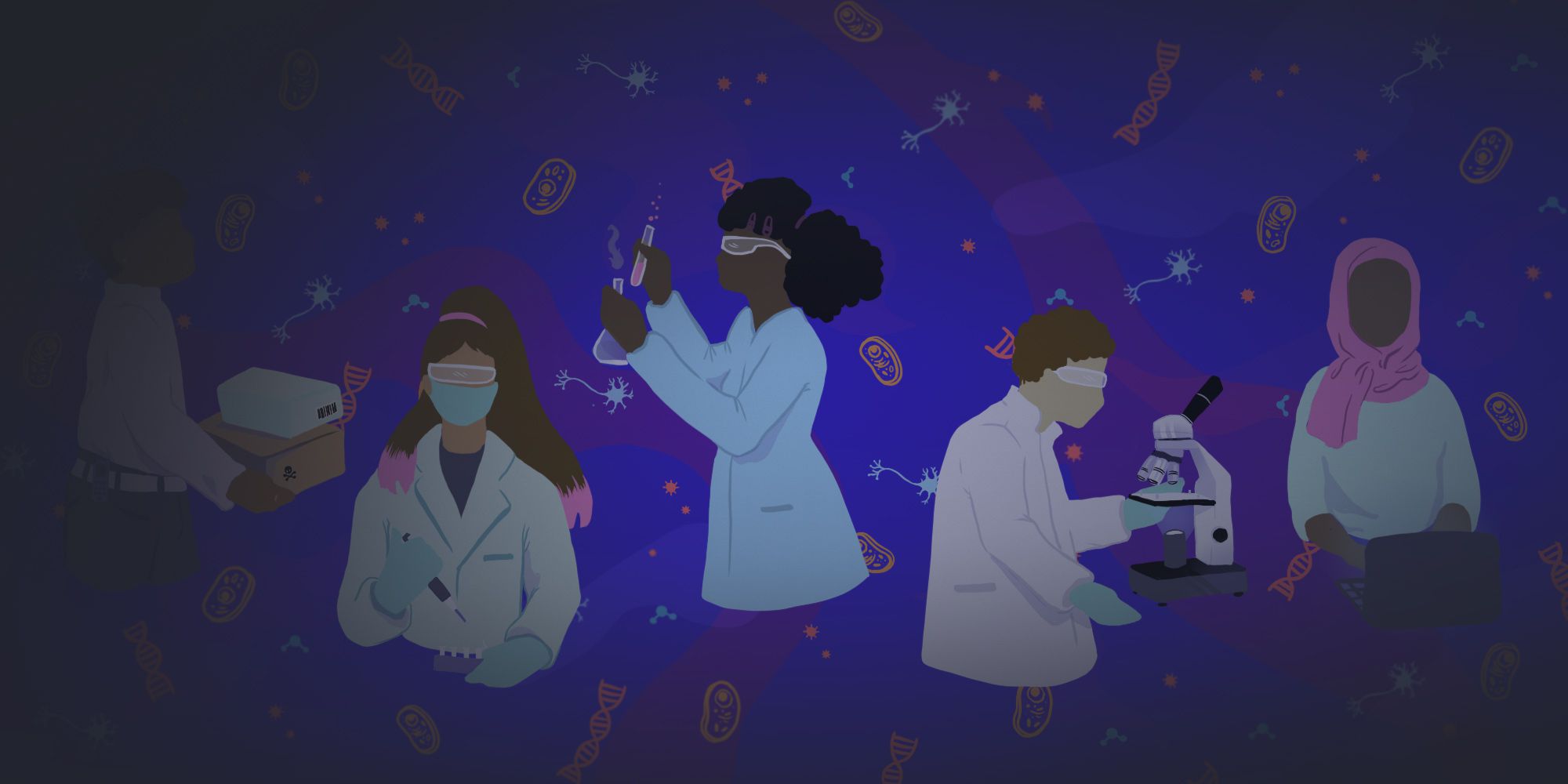Diversity at IGI
We believe that diversity, equity, and inclusion are fundamental to realizing the promise of genome engineering. We strive to provide a workplace that is welcoming, inclusive, and reflects the diversity of our community, with equal opportunity in hiring, development, and advancement.
We envision a world in which genome-engineering innovations benefit humanity and are accessible to all. We are dedicated to creating genome technologies that benefit historically underserved communities or advance genome-editing technology to meet these ends. Dialogue and collaboration with stakeholders in these communities is crucial to doing this work effectively.
Among our research projects that aim to benefit underserved groups (detailed below), we are particularly proud of our efforts as a partner in the only non-profit group creating a CRISPR therapy for sickle cell disease. This disease affects about 10,000 Black Americans in California alone, and about 8 million people worldwide, particularly in sub-Saharan Africa. You can learn more about our work on this flagship project here.
For CRISPR technology to truly benefit all, we must create new paradigms for distributing genome-engineering technologies that ensure broad, equitable access. Learn more about the IGI Public Impact program.
A Strategic Plan for DEI at IGI
Inspired by the George Floyd protests and the Black Lives Matter movement more broadly, a group of IGI members formed a DEI Committee in 2020. Over the following two years, the committee worked with the UC Berkeley Division of Equity & Inclusion to create a demographics and climate survey for IGI members and wrote a DEI Report and Strategic Plan. The documents were completed in 2022. In 2024, we hired a Diversity & Outreach Manager to help enact the Strategic Plan.
Learn more about IGI’s ongoing efforts in diversity, equity, and inclusion (DEI).
- To ensure that undergraduate research opportunities are as inclusive as possible, not just open to those who can afford to work for free, the IGI’s policy is that all undergraduates working on IGI-funded projects should be paid. Students may request course credit as an alternative if that is their preference.
- Sine Fall 2021, the Career Development Fund has supported IGI members with financial barriers to participation in workshops, conferences, and other professional development opportunities.
- IGI has a strong track record of support women in STEM. Our ongoing HS Chau Women in Enterprising Science Program, launched in 2022, supports women in bio-entrepreneurship.
- IGI’s free educational materials are accessible all over the world.
- IGI’s site provides high-quality AI translation into Spanish and simplified Chinese. Key resources like CRISPRpedia, CRISPR Made Simple, and our Illustrated Glossary are manually translated into Spanish. See our Spanish-language resources here.
- Research projects that benefit underserved groups include:
- Discovery and therapy for sickle cell disease
- Developing targeted gene insertion technology in rice
- Genome editing of the staple crop cassava to eliminate toxic cyanogen production
- Engineering disease-resistant cacao
- CRISPR-Cas9-based gene drive architecture for control of agricultural pests
- Impacts of virtual mentoring on STEM students
- Surveillance of COVID-19 (SARS-CoV-2) infection in California farmworkers
- Next-generation sequencing to inform COVID-19 outbreak response in Madagascar
- Our Communications team regularly highlights researchers from minoritized groups in press materials and social media, and produces the Meet an IGI Scientist profile series, which feature short interviews researchers from a wide variety of backgrounds.
The Public Impact team aligns IGI’s genome-engineering innovations with societal values. Learn more about their ongoing research here.
- Resources from the Public Impact Team include:
- The Public Impact team co-hosts IGI’s Berkeley Ethics and Regulation Group for Innovative Technologies (BERGIT) group meets regularly to discuss research and technology ethics, including the impact of new technologies on non-dominant groups.
- IGI partnered with groups who work with underserved members of our community, including Lifelong Medical Care in Berkeley and Roots Community Health Center in Oakland, to process tests for high-risk community members.
- IGI funded COVID-19 research projects that benefited underserved groups, including:
- Impacts of virtual mentoring on STEM students
- Surveillance of COVID-19 (SARS-CoV-2) infection in California farmworkers
- Next-generation sequencing to inform COVID-19 outbreak response in Madagascar
- Together with our partners at the Howard Hughes Medical Institute, the IGI and the University of California developed a non-exclusive, no-fee, royalty-free license to make new technology related to COVID-19 available to any entity working on this disease.
We welcome all applicants for employment and commit to providing all employees with equal opportunity for advancement, regardless of race, color, religion, gender, pregnancy, marital status, national origin or ancestry, disability, veteran status, military service, age, sexual orientation, gender identity, or genetic information.
